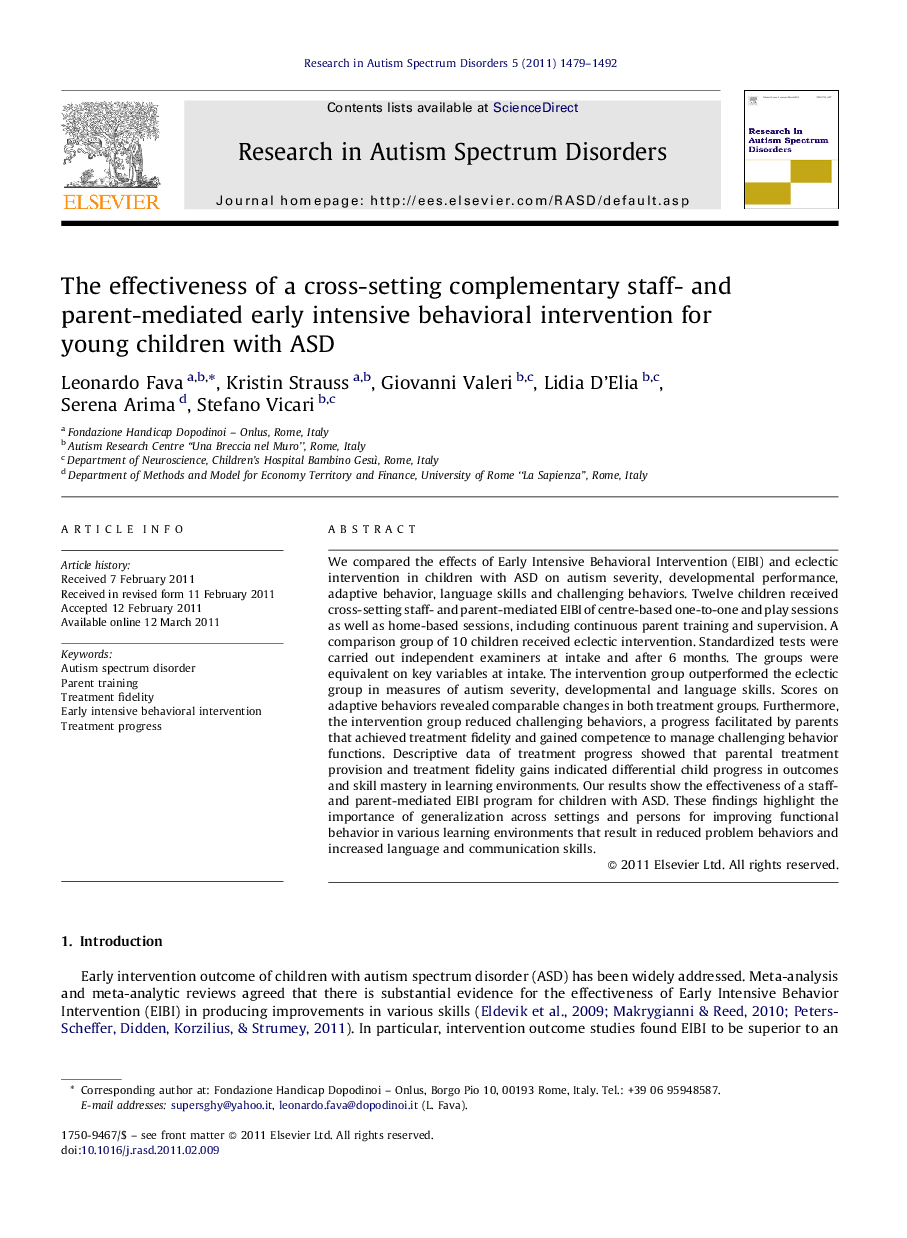| Article ID | Journal | Published Year | Pages | File Type |
|---|---|---|---|---|
| 370662 | Research in Autism Spectrum Disorders | 2011 | 14 Pages |
We compared the effects of Early Intensive Behavioral Intervention (EIBI) and eclectic intervention in children with ASD on autism severity, developmental performance, adaptive behavior, language skills and challenging behaviors. Twelve children received cross-setting staff- and parent-mediated EIBI of centre-based one-to-one and play sessions as well as home-based sessions, including continuous parent training and supervision. A comparison group of 10 children received eclectic intervention. Standardized tests were carried out independent examiners at intake and after 6 months. The groups were equivalent on key variables at intake. The intervention group outperformed the eclectic group in measures of autism severity, developmental and language skills. Scores on adaptive behaviors revealed comparable changes in both treatment groups. Furthermore, the intervention group reduced challenging behaviors, a progress facilitated by parents that achieved treatment fidelity and gained competence to manage challenging behavior functions. Descriptive data of treatment progress showed that parental treatment provision and treatment fidelity gains indicated differential child progress in outcomes and skill mastery in learning environments. Our results show the effectiveness of a staff- and parent-mediated EIBI program for children with ASD. These findings highlight the importance of generalization across settings and persons for improving functional behavior in various learning environments that result in reduced problem behaviors and increased language and communication skills.
Research highlights► Cross-setting staff- and parent-mediated EIBI was compared to eclectic intervention. ► EIBI produces superior outcome on autism severity, developmental state and language. ► Model implementation was effective, increasing treatment fidelity of staff and parent. ► Parental inclusion substantially impact child progress in outcomes and skill mastery.
